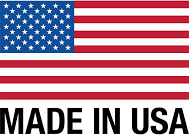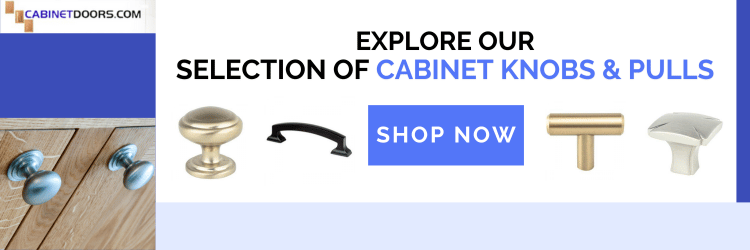Knobs vs. Pulls on Kitchen Cabinets: Which to Choose?
Posted by Melissa Hollobaugh on Apr 9th 2025
Your kitchen cabinet hardware can pull together the entire space and protect the finish of your cabinets. When you look for the right hardware to fit your cabinet doors, you have two options—knobs and pulls, with each option having a long list of possible designs and finishes.
With so many possibilities, it can be hard to determine when to use each. You can create your perfect kitchen with your ideal design style by considering a few simple factors.
Here’s how to decide between knobs or pulls for cabinets in your kitchen:
What’s the Difference Between Knobs and Pulls?
Cabinet knobs are round metal handles, usually about an inch in diameter. Knobs are a great choice when looking for a classic, more ornate look, but they can also be designed to be more minimalist and modern. Cabinet pulls appear more like handles, with two attachment points and a bar between them. Pulls are great for creating a minimalist look, as many have a rectangular design, but some may be rounded or more detailed.
Knobs and pulls are the two most common types of cabinet hardware, and both offer great functionality as handles for your kitchen cabinet doors and drawers. They can also both provide great aesthetic advantages. Although both can be created with the same material and finish, they still bring their own personalities.
Are Knobs or Handles Better for Kitchen Cabinets?
Cabinet handles and knobs are both functional necessities for kitchens. Knobs are better for upper cabinets, and pulls are better for lower cabinets and drawer fronts. Mixing both options in your kitchen is the best way to get the most out of your space.
When to Choose Knobs on Cabinets
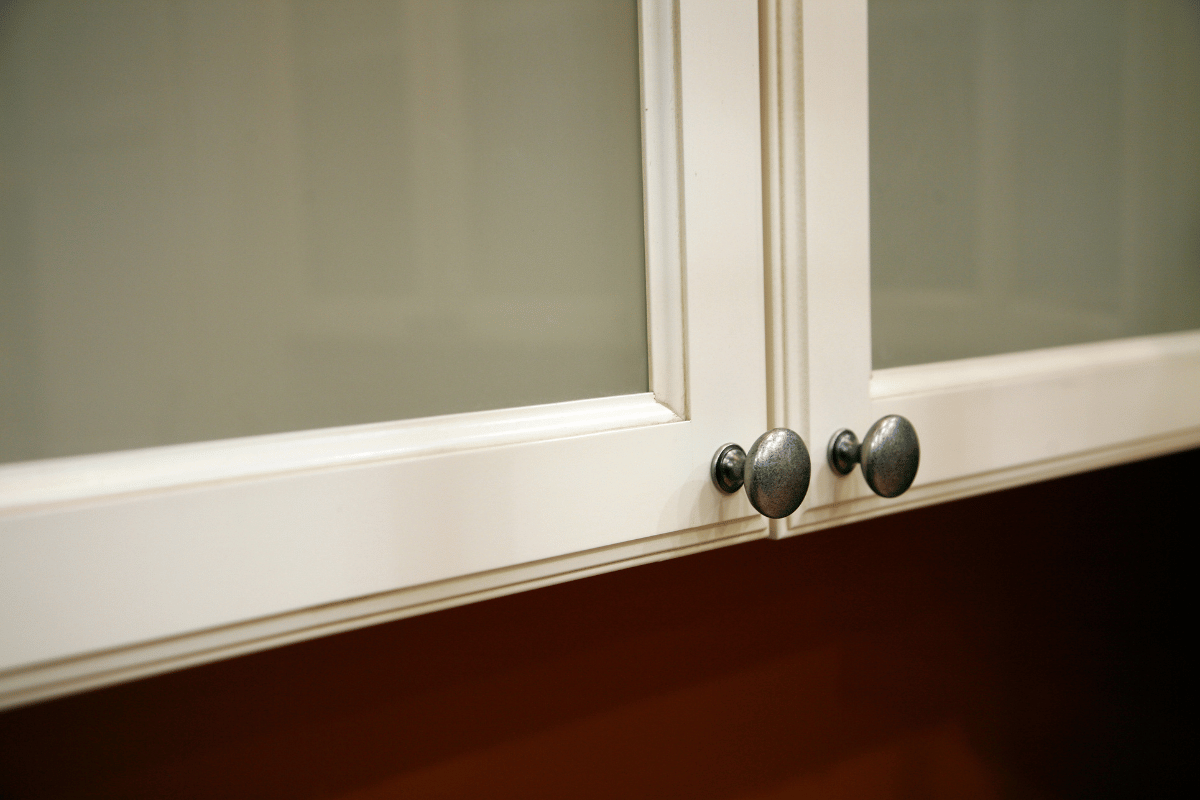
Knobs are a stylish option for kitchens, bathrooms, and living room cabinetry. The hardware is easy to install and can be switched out if you upgrade your kitchen. Cabinet knobs are also typically more affordable, making them a budget-friendly option for small home renovation projects.
Here's when to use cabinet knobs over pulls:
- Cabinets in a small space
- Upper cabinets
- Traditional or vintage kitchen designs
When to Choose Pulls on Cabinets

Pulls offer kitchens many functional and practical benefits. The styles provide ergonomic advantages and are easier for children or the elderly to grab. There are also vintage-inspired pulls, like cabinet cup pulls, that are great for specific kitchen designs.
Here's when to use cabinet pulls over knobs:
- Heavy drawers
- Drawer fronts and lower cabinets
- Places where you need the cabinet drawer to be easier to grip
- Best for drawers and heavier doors
- Easier grip and ergonomic advantage
- Modern or transitional kitchen styles
What is the Best Placement for Cabinet Knobs and Pulls?
Cabinet knob placement is best when the knobs are placed near the corners of the doors at an equal distance, about an inch to two inches away, from each side. However, depending on the door style, you have the option to either place the knob on the corner of the frame or the corner of the inset panel.
On drawers, it is best to keep the knob centered for the best symmetrical appearance. Similar to knobs, cabinet handle placement looks best when placed at the bottom corner of the door, or the top corner if the cabinet is underneath the counter. For drawers, you can have pulls installed at the center panel's center, or aligned and centered with the top edge of the drawer.
A good size ratio to consider is to keep your pulls to about 1/3 the size of your cabinet drawer face. If you really want to be flashy, you can choose longer pulls extending almost the entire drawer front.
Factors to Consider Before Choosing Cabinet Knobs and Pulls
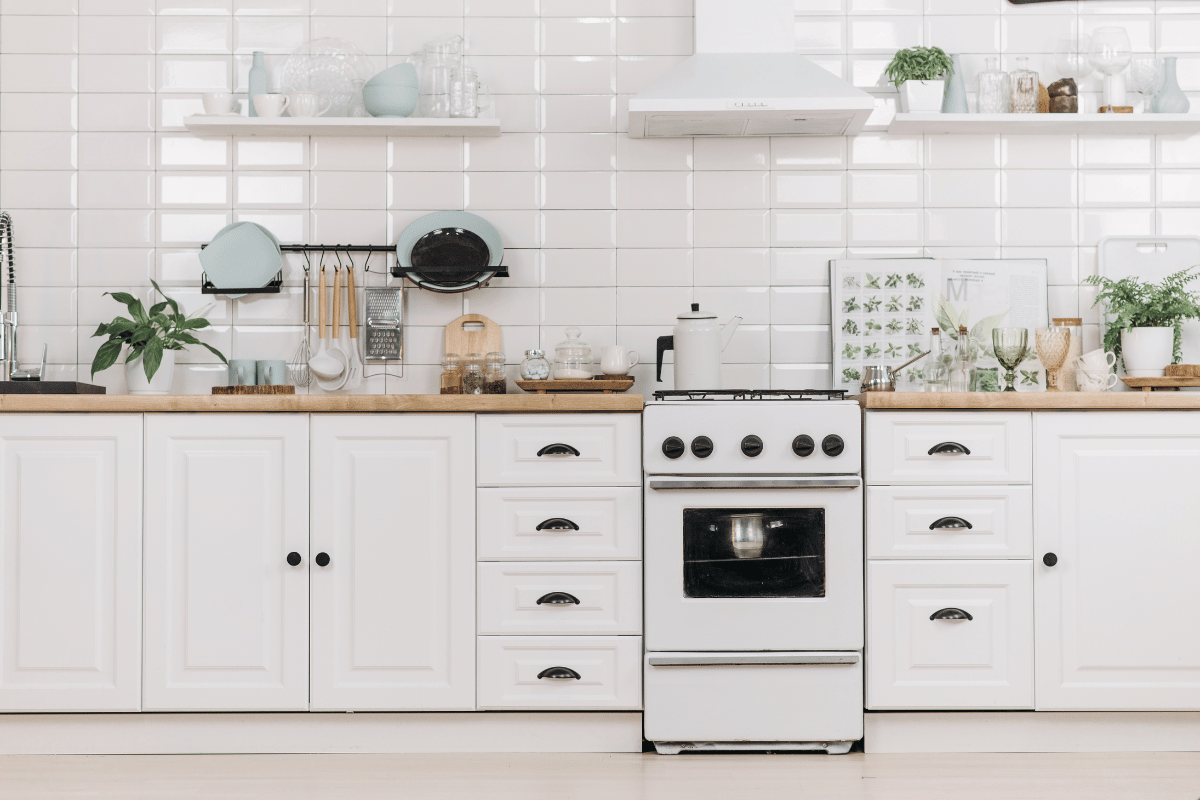
How you use knobs and pulls is ultimately up to you, as much of the design comes down to your personal preference. However, there are a few things to consider before deciding between knobs or pulls on cabinets:
Kitchen Style
Design style will likely be one of the biggest factors in determining which hardware you use. If you are looking for a specific kitchen style, then you want hardware that matches the theme.
If you want a more traditional or classic look, then knobs may be the right choice. Knobs bring a warm character to a space, as they remind you of rustic or farmhouse styles. Knobs also tend to wear washed earthy metals a bit better. Of course, though, there is no rule that you can’t make this hardware work with other styles.
Modern styles generally look great with cabinet door pulls. Straight line, rectangular pulls are functional and often simple. They are great for adding a minimalist, straightforward design style to your kitchen. Round pulls can be a good option for more rustic styles.
Cabinet Door Style
Different cabinet door styles just look better with specific hardware. For example, detailed cabinet door styles, like Arched Cabinet Doors or French-Lite Glass Ready Doors are well complemented by a nicely-crafted detailed knob.
Meanwhile, edge-banded slab cabinet doors generally fit well with cabinet door pulls as the simplicity of the door allows the geometry of the handle to stick out. Shaker-style doors typically offer more versatility as they can work with either hardware.
Grip
Sometimes functionality is more important than appearance. Pulls may be the better choice if you live with children or someone a bit older who has a hard time gripping. Since you can grab a pull with three to four fingers, it is much easier to get a better handle.
Knobs can also allow for easy slipping when trying to grab them since they are smaller and more difficult to wrap your hand around. However, knobs are generally better for cabinets over the counter as they are easier to get your hands on in with an extended reach.
Kitchen Layout
If you have cabinets in hard-to-reach areas or you have a smaller kitchen, you may want to use more cabinet knobs rather than pulls. Heavier drawers attached to your kitchen island or under the sink would benefit from larger drawer pulls. If the doors are on the lighter side, a door knob may be more suitable. Modern, open-concept kitchens typically look more streamlined and put together with drawer pulls.
Mixed Hardware Design: Using Both Knobs and Pulls
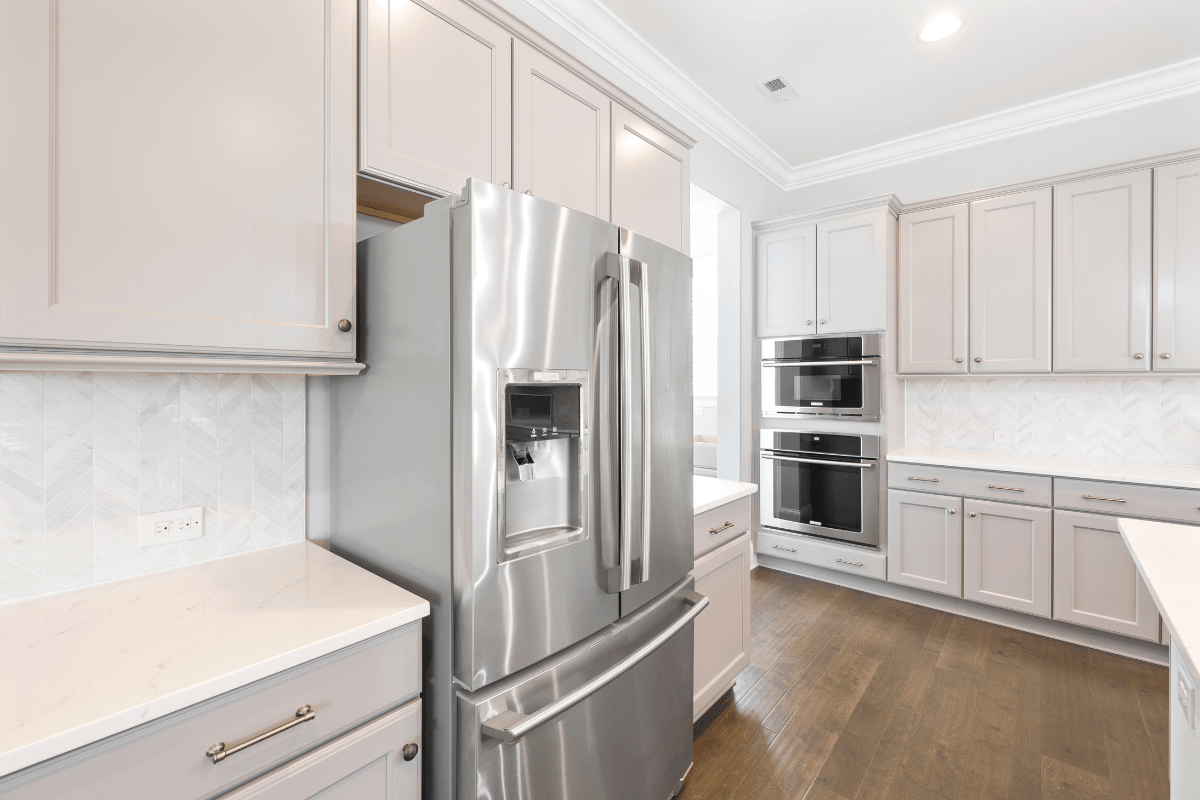
Combining cabinet handles and knobs in your space is the most effective way to enhance the functionality of your space. Pulls are typically recommended for the lower cabinets because it makes them easier to open and close, while knobs look better on the upper cabinets and are easier to grab and reach. When mixing knobs and pulls on kitchen cabinets, you'll want to consider:
- Matching the finishes to maintain a cohesive look
- Keep the hardware similar in size so it doesn't look disproportionate
- Commit to the specific aesthetic you're trying to achieve (modern, traditional, contemporary)
Find the Right Hardware for Your Kitchen
Ultimately, how you decide to fit your kitchen cabinets and drawers with hardware is up to you. As you search for the right cabinet or drawer knobs and pulls, you can look to CabinetDoors.com for help. Check out our selection of cabinet hardware, including a range of styles and finishes.
If you want to update more than just your cabinet hardware, we can help you find styles for brand-new cabinet doors as well. Explore our collection of custom cabinet doors to get started. With over 40 years of experience in the industry, we know what it takes to create a quality cabinet door.
Frequently Asked Questions
Are knobs or pulls better for kitchen cabinets?
Cabinet door pulls are better for lower cabinets, and knobs are better for the upper cabinets. Mixing both types of hardware is the best way to improve the functionality and accessibility of your space.
Can you mix pulls and knobs on cabinets?
Absolutely. Mixing knobs and pulls on kitchen cabinets is typically recommended. This is the best way to maximize the functionality of your space. When pairing pull and knobs, you'll want to stick with a similar finish. This will help you create a cohesive appearance.
Are knobs or pulls better for drawer fronts?
Pulls are more practical for drawer fronts because they provide better grip than knobs. Pulls are also better for heavier cabinet drawers because they help distribute the force, which can help minimize warping and distress.
Do drawer fronts need cabinet door hardware?
If drawer knobs and pulls don't compliment your aesthetic, consider investing in slab drawer fronts. This style doesn't require hardware and is ideal for minimal and modern aesthetics.

